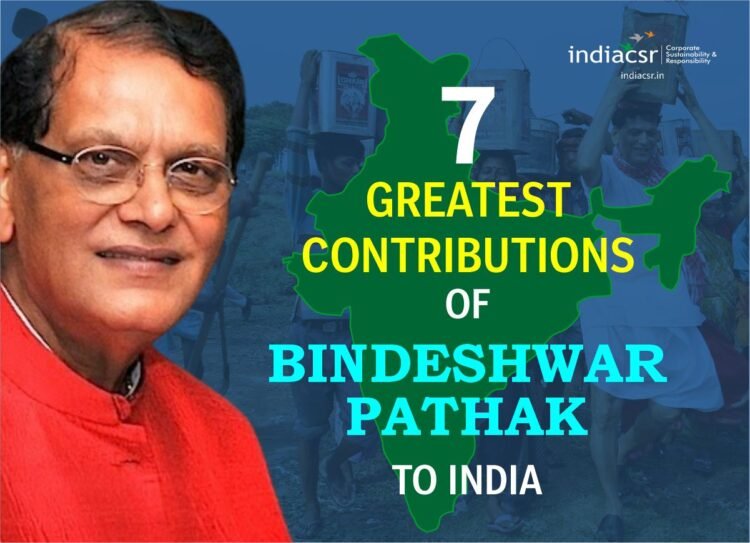Dr. Bindeshwar Pathak was a pioneer in sanitation and social reform in India. He founded Sulabh International, a non-profit organization that has been working to promote sanitation and hygiene in India for over 50 years. He is credited with developing the Sulabh toilet, a low-cost, waterless toilet that has been used by millions of people in India.

Dr. Bindeshwar Pathak was a visionary sociologist and social entrepreneur who founded Sulabh International, an organisation that works to improve sanitation and hygiene in India and other countries. He passed away on August 15, 2023, due to a cardiac arrest. He was 80 years old.
Inspiration and Innovation
Dr. Pathak was inspired by Mahatma Gandhi’s vision of uplifting the downtrodden and eliminating the practice of manual scavenging. He developed an innovative and low-cost toilet system called Sulabh Shauchalaya, which does not require manual cleaning and produces biogas and organic manure. He also launched a movement to rehabilitate and empower the scavengers by providing them with education, training, and alternative livelihoods.
Acclaim and Honors
The work has been done by Dr. Bindeshwar Pathak recognised nationally and internationally for its contribution to social reform, environmental protection, human rights, and public health. He received the Padma Bhushan, India’s third-highest civilian award, in 1991. He also received many other awards and honors, such as the Stockholm Water Prize, the Gandhi Peace Prize, the Indira Gandhi Prize, and the Lal Bahadur Shastri National Award. He was also declared as the Brand Ambassador for the Swachh Rail Mission of Indian Railways in 2016. In the same year, New York City declared April 14 as ‘Bindeshwar Pathak Day’ in his honor.
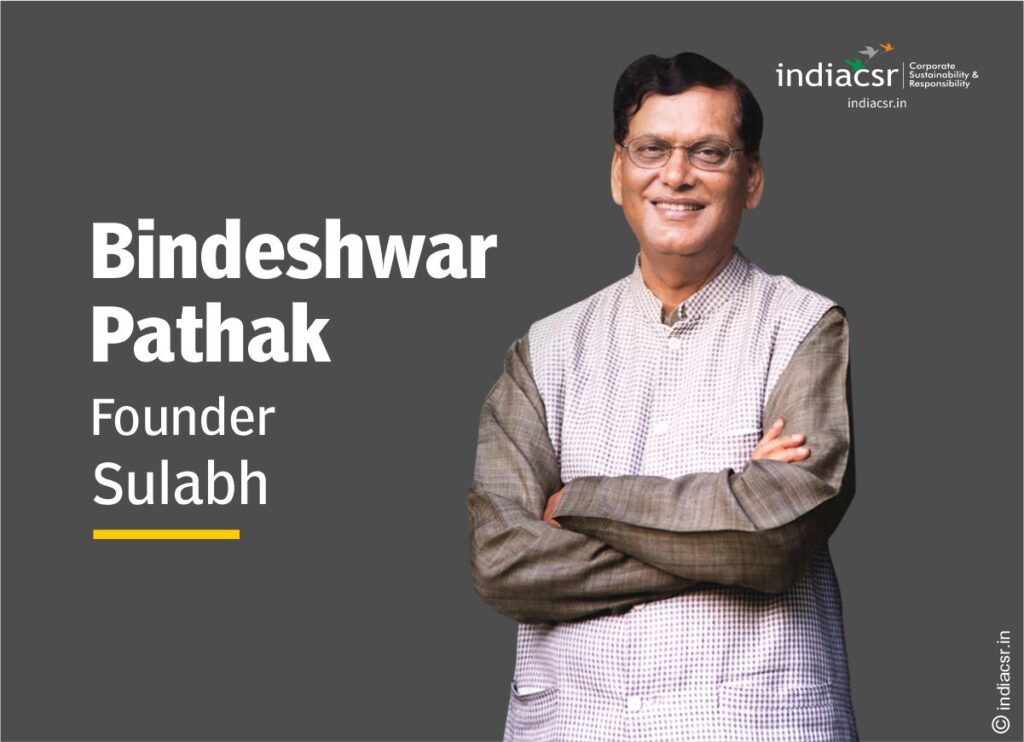
Bindeshwar Pathak: The Enduring Legacy of Sulabh International
Dr. Bindeshwar Pathak’s legacy lives on through his organisation Sulabh International, which has constructed over 1.3 million household toilets and over 50 million government toilets based on his design. The organisation also runs over 8,000 public toilets across India that serve more than 15 million people every day. The organisation has also expanded its activities to other countries such as Afghanistan, Bangladesh, Bhutan, Nepal, Ethiopia, Ghana, Madagascar, Mozambique, Nigeria, South Africa, and Zambia.
In this article, we will highlight seven of the greatest contributions of Dr. Pathak to India and the world.
1. Ending Manual Scavenging
Manual scavenging is the practice of manually cleaning human excreta from dry latrines or open drains by people belonging to the lowest stratum of India’s caste-based system, mostly women. It is a degrading and inhuman occupation that exposes the workers to various health hazards and social stigma.
Dr. Pathak was one of the first to challenge this practice and advocate for its abolition. He devised a simple and cost-effective technology called Sulabh Shauchalaya (Sulabh Toilet), which consists of two pits that are used alternately for disposal of excreta. The excreta gets decomposed in the pits over time and can be used as manure for agriculture. The toilet does not need water for flushing or manual intervention for cleaning.
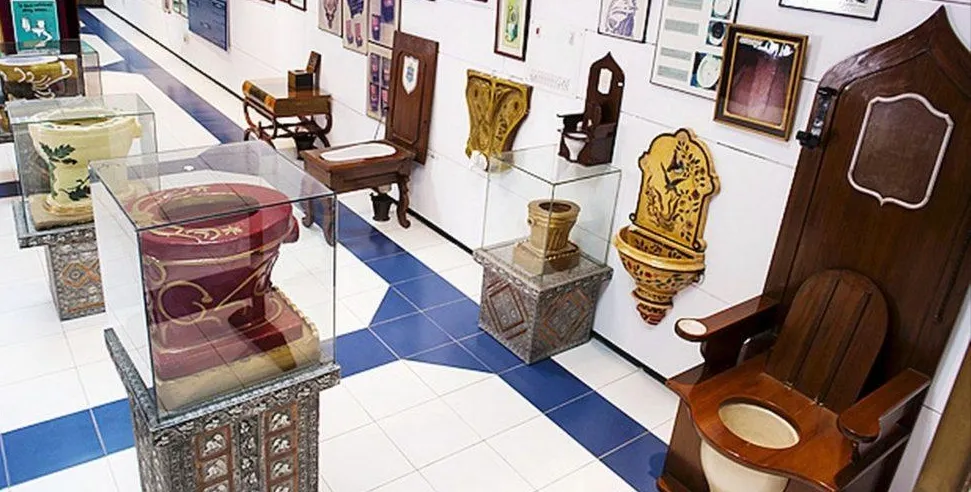
Dr. Pathak also initiated a comprehensive programme for the liberation and rehabilitation of manual scavengers. He provided them with vocational training in various skills such as tailoring, embroidery, food processing, beauty care, etc., and helped them set up their own enterprises or find employment opportunities. He also arranged for their education, health care, social security, and legal aid.
Dr. Pathak’s efforts have resulted in freeing more than a million manual scavengers from their demeaning occupation and restoring their dignity and human rights.
2. Promoting Sanitation and Hygiene
Sanitation and hygiene are essential for preventing diseases and improving the quality of life of people. However, millions of people in India lack access to safe sanitation facilities and practice open defecation, which poses serious threats to their health and environment.
Dr. Pathak pioneered a mass movement for sanitation and hygiene in India by creating awareness among the people about the benefits of using toilets and maintaining cleanliness. He mobilised communities, local governments, NGOs, media, celebrities, religious leaders, etc., to participate in his campaign and adopt his toilet technology.
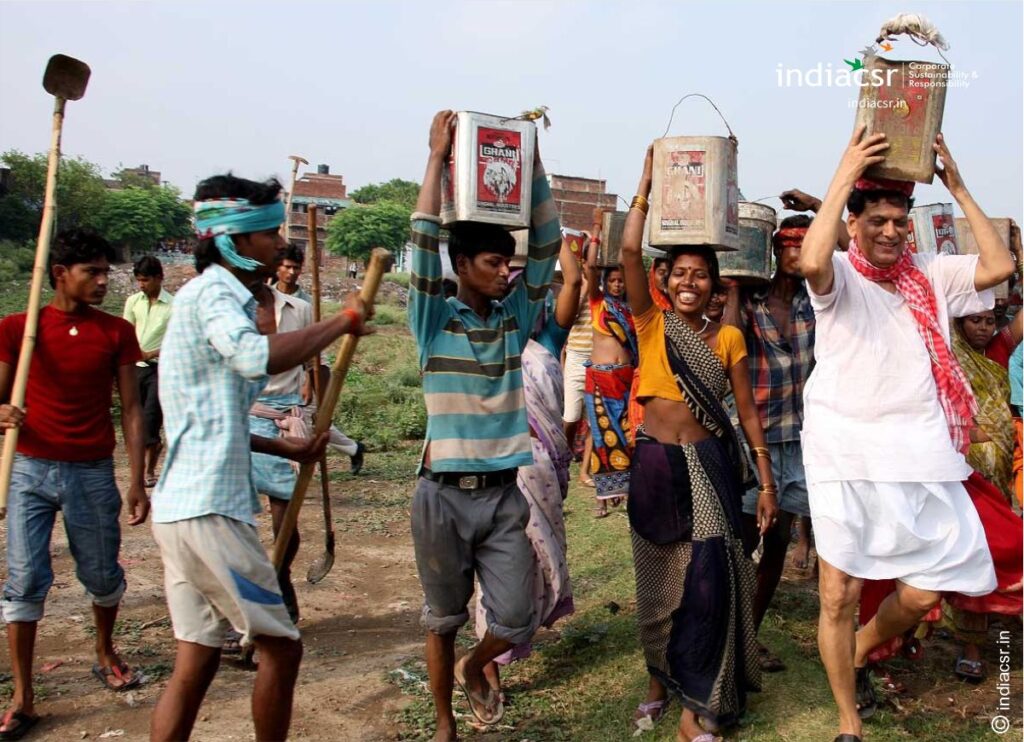
Dr. Pathak also developed various models of public toilets that cater to different needs and situations such as urban slums, rural areas, schools, railway stations, bus terminals, markets, etc. These toilets are equipped with facilities such as bathing rooms, laundry platforms, urinals, wash basins etc., and are maintained by trained staff.
Dr. Pathak’s work has contributed to improving the sanitation coverage and hygiene practices of millions of people in India and reducing the incidence of diseases such as diarrhoea, cholera, typhoid etc.
3. Generating Biogas and Biofertiliser
Biogas is a renewable source of energy that can be produced from organic waste such as human or animal excreta, kitchen waste etc., through anaerobic digestion process. Biofertiliser is a natural fertiliser that can be obtained from the digested slurry of biogas plants.
Dr. Pathak innovated a way of linking his toilet system to biogas plants, which can produce biogas and biofertiliser from human excreta. He designed and installed various types of biogas plants such as fixed dome, floating drum, balloon type etc., depending on the availability of space and resources.
Dr. Pathak also demonstrated the use of biogas for various purposes such as cooking, lighting, heating, power generation etc., and promoted its adoption by households, institutions, and industries. He also advocated the use of biofertiliser for enhancing soil fertility and crop productivity.
Dr. Pathak’s work has helped in harnessing the potential of waste as a resource and providing a clean and sustainable alternative to conventional sources of energy and fertiliser.
4. Managing Liquid and Solid Waste
Liquid and solid waste are the major sources of environmental pollution and health hazards in urban and rural areas. They need to be properly collected, treated, and disposed of to prevent their adverse impacts on the environment and human health.
Dr. Pathak developed an integrated approach for liquid and solid waste management based on his toilet technology and biogas plants. He devised a system of collecting the wastewater from his toilets and treating it in a series of tanks where it undergoes sedimentation, filtration, aeration, and disinfection processes. The treated water can be reused for gardening, irrigation, flushing etc., or discharged into drains or water bodies without causing any harm.
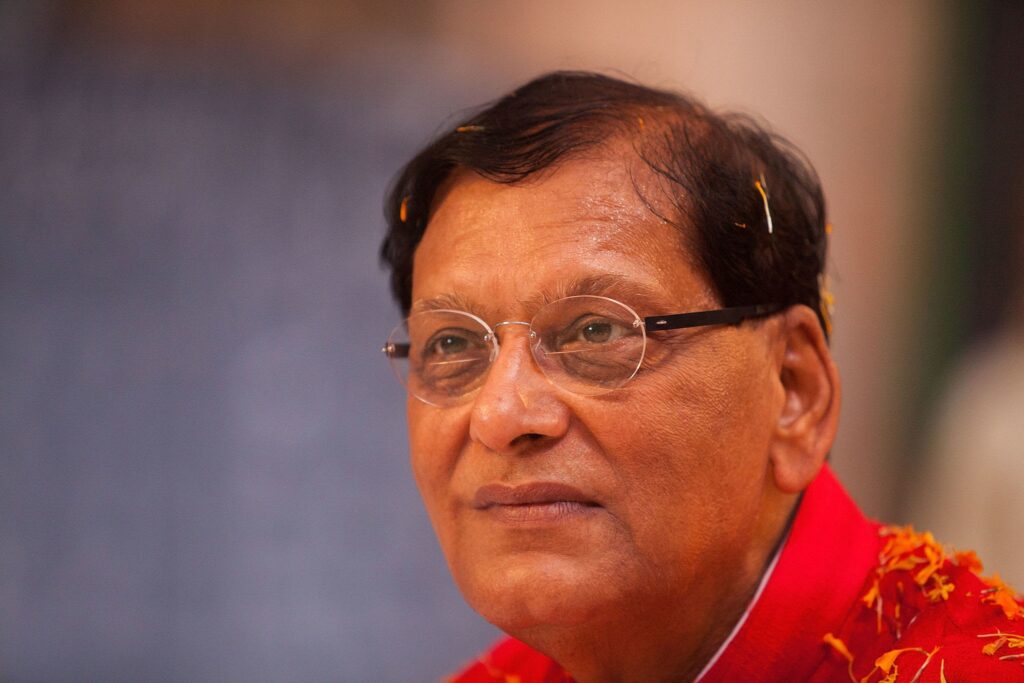
Dr. Pathak also devised a system of collecting solid waste from his public toilets and other sources and converting it into biogas and biofertiliser through his biogas plants. The residual solid waste can be further processed into compost or vermicompost or used for making bricks or tiles.
Dr. Pathak’s work has helped in reducing the generation of waste and its impact on the environment and human health.
5. Alleviating Poverty
Poverty is a multidimensional problem that affects the lives of millions of people in India. It is caused by various factors such as lack of income, education, health care, social security etc., and leads to various problems such as hunger, malnutrition, illiteracy, disease etc.
Dr. Pathak addressed the issue of poverty by providing various opportunities for income generation, skill development, education, health care etc., to the poor and marginalised sections of society such as manual scavengers, slum dwellers, women etc.
He provided them with low-cost sanitation facilities that improved their living conditions and saved them from spending on health care. He also provided them with training in various vocations such as tailoring, embroidery, food processing etc., that enabled them to earn their livelihoods. He also helped them set up their own enterprises or find employment opportunities in various sectors such as sanitation, biogas, tourism etc.

He also arranged for their education through formal and non-formal modes such as schools, literacy centres, vocational courses etc., that enhanced their knowledge and skills. He also arranged for their health care through regular medical camps, health check-ups, immunisation etc., that improved their physical and mental well-being.
He also arranged for their social security through schemes such as insurance, pension, savings etc., that provided them with financial support in times of need.
Dr. Pathak’s work has helped in improving the socio-economic status of millions of poor people in India and empowering them to lead dignified life.
6. Empowering Women
Women are an integral part of society who play multiple roles in family and community life. However, they face various challenges such as discrimination, violence, exploitation etc., that hinder their development and empowerment.
Dr. Pathak recognised the importance of women’s empowerment for social change and development. He involved women in all his activities and programmes and provided them with various opportunities for education, training, employment, leadership etc. He provided women with low-cost sanitation facilities that ensured their privacy, safety, and hygiene. He also provided them with menstrual hygiene products such as sanitary napkins that improved their health and comfort.
He provided women with vocational training in various skills such as tailoring, embroidery, food processing etc., that enabled them to earn their livelihoods. He also helped them set up their own enterprises or find employment opportunities in various sectors such as sanitation, biogas, tourism etc.
He also arranged for women’s education through formal and non-formal modes such as schools, literacy centres, vocational courses etc., that enhanced their knowledge and skills. He also arranged for women’s health care through regular medical camps, health check-ups, immunisation etc., that improved their physical and mental well-being.
He also arranged for women’s social security through schemes such as insurance, pension, savings etc., that provided them with financial support in times of need. He also encouraged women to participate in decision-making and leadership roles in his organisation and in the society. He supported women’s rights and empowerment movements and advocated for gender equality and justice.
Dr. Pathak’s work has helped in empowering millions of women in India and enhancing their self-esteem and confidence.
7. Spreading Peace and Harmony
Peace and harmony are the foundations of a civilised and progressive society. However, they are often threatened by various factors such as violence, terrorism, communalism, casteism etc., that create hatred and conflict among people.
Dr. Pathak promoted peace and harmony among people of different religions, castes, cultures, and regions through his work and initiatives. He fostered a spirit of brotherhood and solidarity among people by providing them with common facilities and services such as toilets, biogas plants, public baths etc., that brought them together and reduced their differences.
He also organised various events and programmes such as inter-faith dialogues, cultural festivals, peace marches, etc., that celebrated the diversity and unity of people. He also supported various causes and campaigns that aimed at promoting peace and harmony in the world such as the World Toilet Day, the International Year of Sanitation, the Global Interfaith WASH Alliance etc.
Dr. Pathak’s work has helped in spreading peace and harmony among millions of people in India and the world.
Conclusion
Dr. Bindeshwar Pathak was a visionary sociologist and social entrepreneur who founded Sulabh International, an organisation that works to improve sanitation and hygiene in India and other countries. He passed away on August 15, 2023, due to a cardiac arrest. He was 80 years old.
Dr. Pathak made remarkable contributions to India and the world in various fields such as sanitation, hygiene, biogas, biofertiliser, waste management, poverty alleviation, women empowerment, peace and harmony etc. He was a pioneer of sanitation and a champion of social justice who dedicated his life to serving humanity and making the world a better place. He was a true leader who inspired millions of people to follow his footsteps and join his mission.
Dr. Bindeshwar Pathak stands as a beacon of transformative change, having reshaped the sanitation landscape of India. His relentless efforts have not only elevated the country’s sanitation and hygiene standards but have also spotlighted the often-ignored struggles of manual scavengers. Through his visionary approach, he has carved a path of dignity and health for millions. A paragon of innovation and compassion, Dr. Pathak is more than just a national icon; he is a global ambassador for sanitation and social equity.
He will be remembered as one of the greatest sons of India and one of the greatest humanitarians of the world. May his soul rest in peace.
About the Author
This article was written by Rusen Kumar, a well-known CSR journalist in India. He is the founder and managing editor of India CSR Network, a leading media network for corporate responsibility and sustainability in India. He is also the author of several books on CSR, sustainability and social issues.
Also Read: Bindeshwar Pathak: Who Inspired Millions On Sanitation In India Passes Away
Source: 1. sulabhinternational.org 2. en.wikipedia.org 3. thefamouspeople.com 4. rawatbooks.com 5. sulabhinternational.org

